
Medical Detox for Heroin Addiction: Challenges and Solutions
Understanding the Detoxification Process
Heroin addiction remains a critical public health issue, affecting countless individuals globally. Detoxification, often the initial step in the recovery journey, presents numerous challenges and requires a well-planned approach to ensure safe and effective outcomes. This article explores the multifaceted nature of medical detox for heroin addiction, delving into the intricacies of withdrawal management, the significance of medical and psychological support, and the spectrum of treatment options available.
Medical Detox: A Foundational Step in Recovery
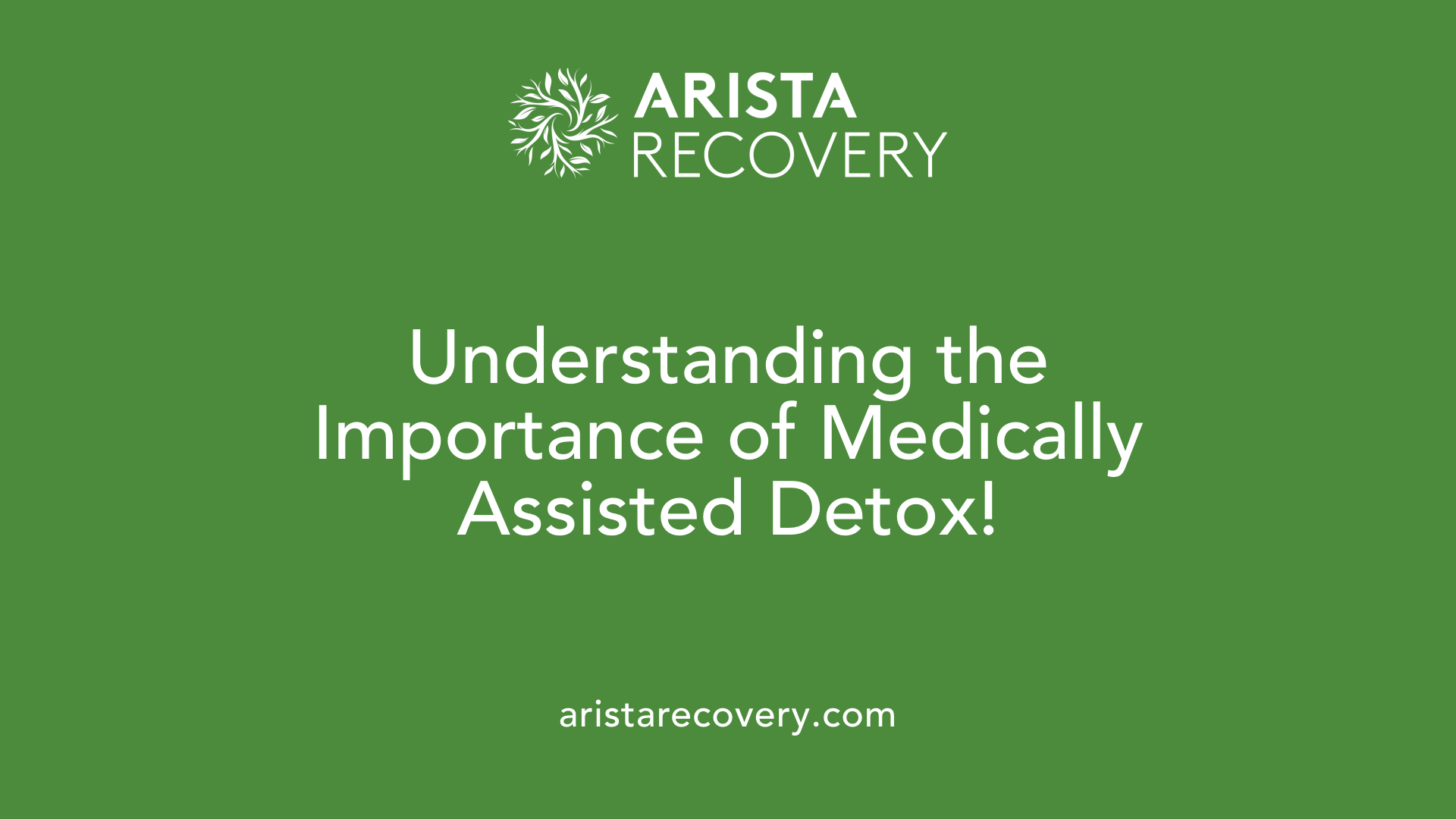
What is medically assisted detox?
Medically assisted detox refers to the process of removing addictive substances from the body under the supervision of licensed medical professionals, including physicians, nurses, and therapists. This crucial care ensures safety and comfort during withdrawal, especially for substances like heroin where symptoms can become highly uncomfortable and potentially life-threatening.
The typical duration of medical detox ranges from two to eight days, but it can vary based on individual circumstances and the specific substance involved. For instance, heroin detox frequently requires thorough medical supervision as withdrawal symptoms can start as early as 6–12 hours after the last dose and peak within 48 to 72 hours. Medications such as methadone and buprenorphine may be administered during this process to alleviate withdrawal symptoms and reduce the risk of relapse.
Role of medical professionals in supervised detox
Medical professionals play an essential role in the detoxification process. Their responsibilities include conducting comprehensive evaluations to assess the patient’s use history, health status, and specific needs. Nurses and support staff are also vital, providing ongoing monitoring and support to ensure the individual remains as comfortable as possible.
In settings like inpatient detox programs, patients benefit from 24/7 supervision, which helps to prevent complications that might arise during the withdrawal phase. This structured environment significantly reduces the temptation to relapse and allows immediate intervention should severe symptoms occur, thereby enhancing the chances for a successful recovery.
In summary, medically assisted detox serves as a pivotal first step in combating heroin addiction, setting the foundation for further treatment and recovery efforts.
Confronting Withdrawal Symptoms
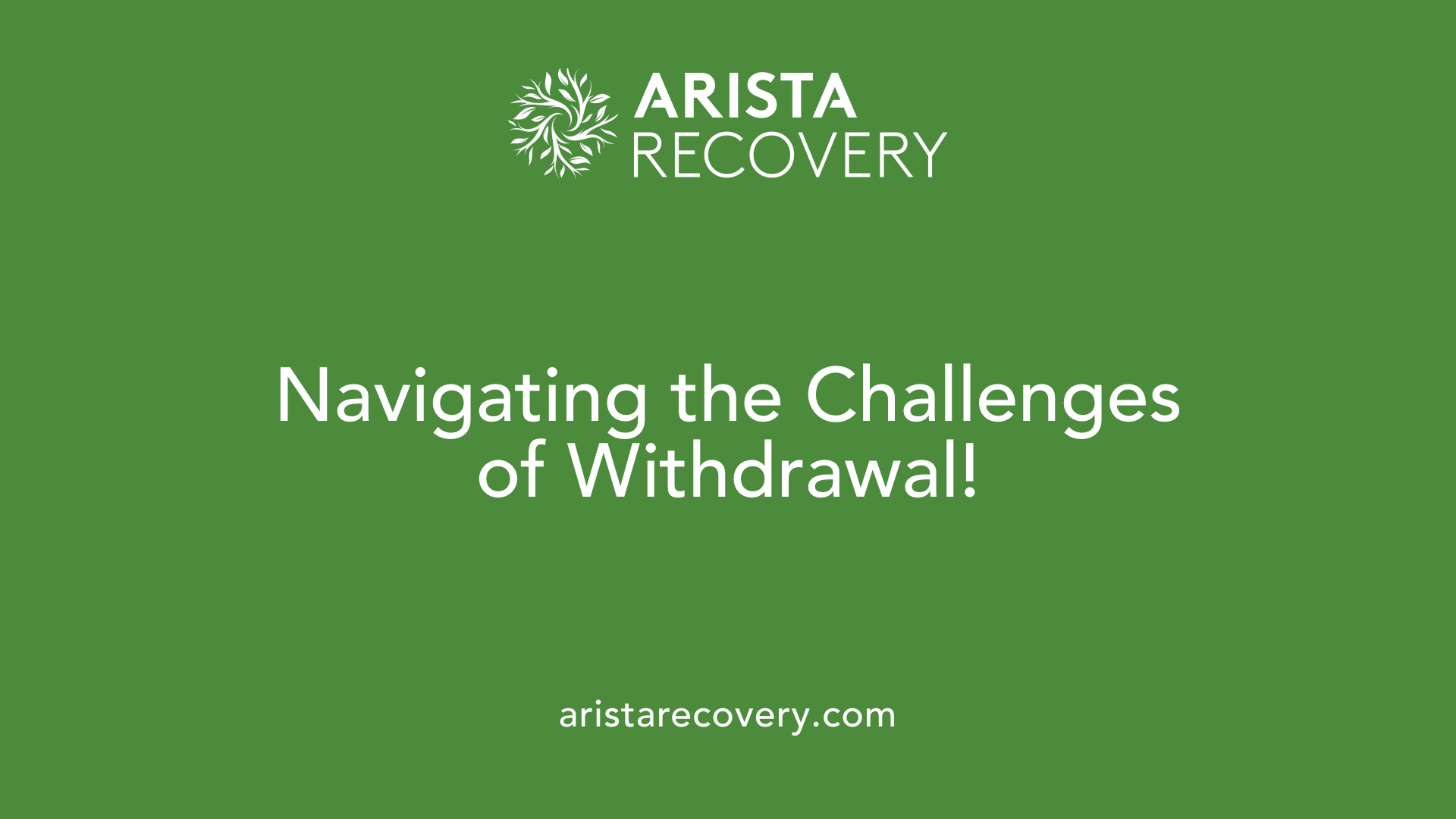
What are the withdrawal symptoms and challenges faced during heroin detox?
Withdrawal from heroin can produce a multitude of distressing symptoms. Initial symptoms typically manifest between 6 to 12 hours after the last use and can include:
- Anxiety: Many individuals experience heightened levels of anxiety, making the process difficult to navigate.
- Nausea and Vomiting: This can lead to dehydration, further complicating recovery.
- Muscle and Bone Pain: Discomfort can be intense, resembling severe flu-like symptoms.
- Insomnia: Difficulty sleeping adds to the overall fatigue and irritability.
- Intense Cravings: The desire for heroin can be overwhelming and is a significant risk factor for relapse.
As detox progresses, these symptoms can peak around day 2 or 3, and may last over a week depending on individual health and the extent of use.
During detox, individuals encounter serious challenges, primarily the discomfort and psychological strain of withdrawal symptoms. Without careful management, these intense experiences can lead to relapse. Medical supervision is critical; tailored strategies, including medications like buprenorphine or methadone, help alleviate withdrawal symptoms and cravings. Additionally, utilizing tools like the Short Opioid Withdrawal Scale (SOWS) aids in assessing symptom severity and guiding treatment decisions.
Overall, effective withdrawal management is integral to a comprehensive, individualized treatment plan, emphasizing the necessity of professional support to aid long-term recovery from heroin dependence.
Exploring Medications for Heroin Addiction
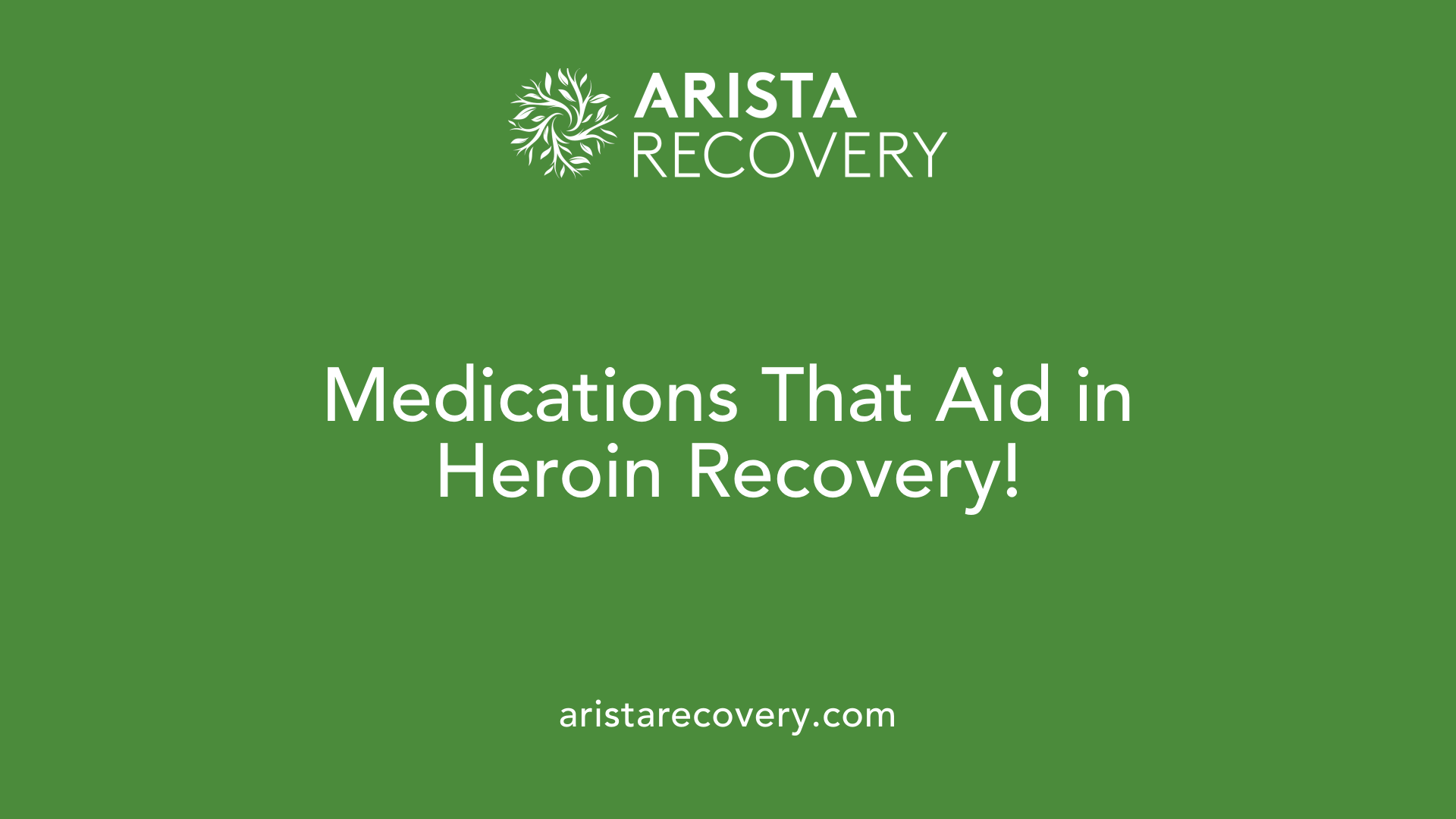
What medication is used for treating heroin addiction?
Medications commonly used for treating heroin addiction include:
- Buprenorphine: A partial opioid agonist that alleviates cravings with minimal opioid effects. It can be prescribed by certified physicians, providing easier access for patients.
- Methadone: A slow-acting opioid agonist dispensed in approved outpatient programs, methadone prevents withdrawal symptoms and reduces the highs associated with heroin use.
- Naltrexone: An opioid antagonist that blocks the effects of opioids, helping maintain recovery. A monthly injection form, Vivitrol, is available for individuals post-detox.
- Suboxone: A formulation of buprenorphine combined with naloxone to deter misuse, enhancing safety in treatment.
These medications help manage withdrawal symptoms and reduce cravings, which are critical in preventing relapse. The treatment plan for heroin addiction is often comprehensive and tailored to the individual's needs, incorporating behavioral therapies alongside medication.
Functions and benefits of medications like methadone and buprenorphine
Both methadone and buprenorphine play essential roles in medication-assisted treatment (MAT):
- Methadone: Its long-acting nature helps to stabilize the patient and minimizes the risk of overdose. It is vital for maintaining a steady level of opioids in the body, reducing cravings and withdrawal symptoms.
- Buprenorphine: Offers a safer alternative, as it has a ceiling effect that reduces the potential for misuse. This characteristic makes it particularly beneficial for outpatient treatment settings, expanding access to care.
Incorporating these medications into a broader treatment approach, including counseling and support groups, is crucial for effective recovery from heroin addiction.
The Essential Role of Professional Support
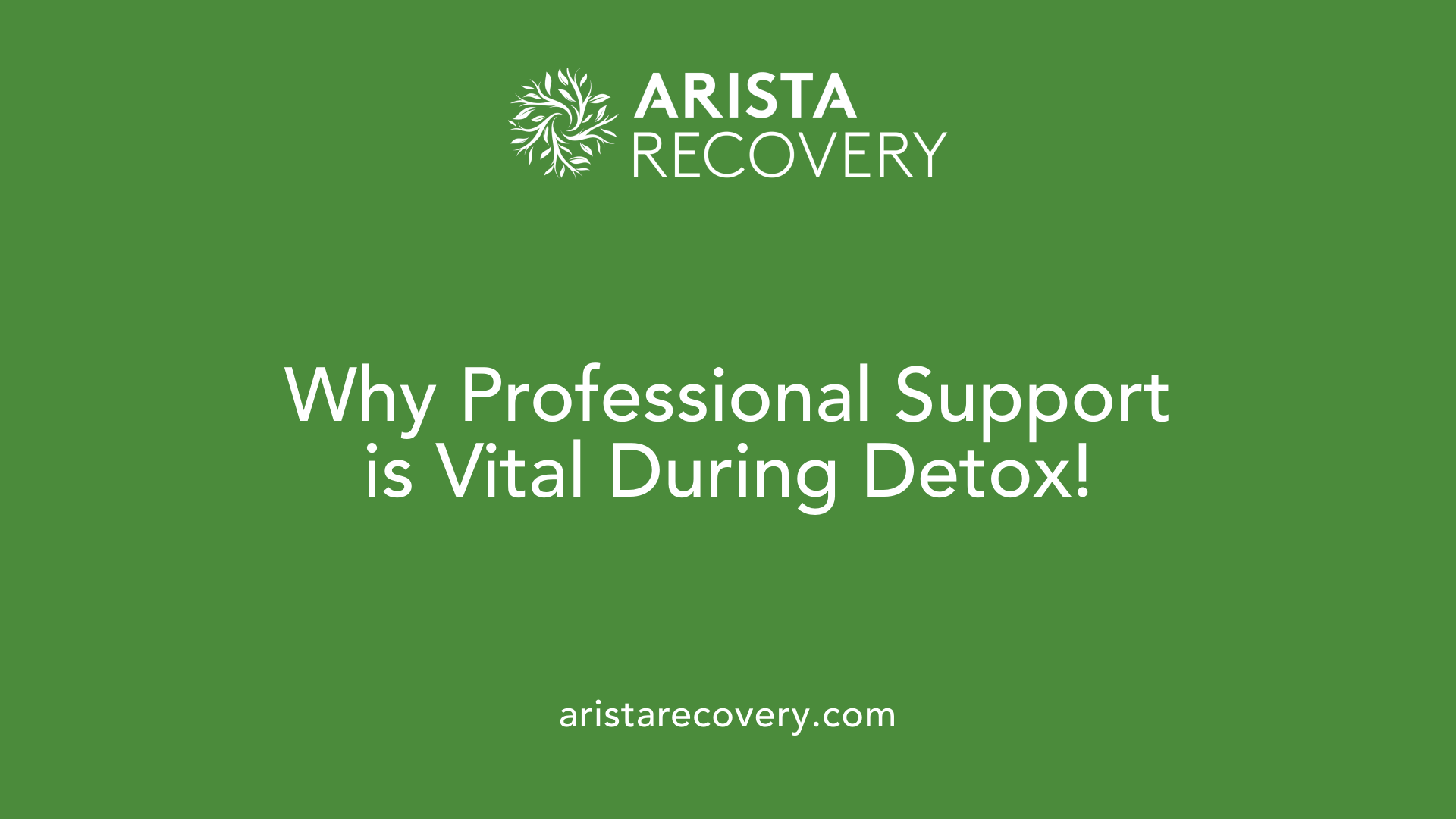
Why is professional support crucial during detoxification?
Professional support is crucial during detoxification due to the challenging and often uncomfortable nature of withdrawal symptoms. Opioids like heroin can cause severe physical and psychological symptoms, including nausea, anxiety, and muscle pain. Medical supervision is essential to effectively manage these symptoms, ensuring not just safety but also comfort during a potentially harrowing process.
Ensuring Safe Management of Withdrawal
In a medically-supervised detox environment, healthcare professionals can administer medications such as methadone or buprenorphine to alleviate withdrawal symptoms. These interventions help to stabilize patients, allowing them to focus on their recovery rather than being overwhelmed by discomfort. Detox setting also plays a key role; inpatient facilities offer a controlled environment where individuals can receive constant support and monitoring, reducing the risks of complications or adverse reactions.
Laying the Groundwork for Long-Term Recovery
Furthermore, ongoing professional guidance helps address the psychological factors tied to addiction. By integrating behavioral therapies like cognitive-behavioral therapy with pharmacological treatments, individuals are better equipped to handle cravings and triggers. This combination enhances not only immediate comfort during detox but lays a strong foundation for sustained recovery efforts.
Broader Implications for Community Health
Ultimately, providing professional support during detoxification has far-reaching impacts. It ensures that those struggling with addiction can reintegrate into society more effectively, which is vital for community well-being. This targeted assistance not only aids individuals in their journey to sobriety but also alleviates the broader public health issues associated with opioid misuse and addiction.
Understanding the Risks and Complications
What are the health risks and complications associated with heroin detoxification?
Heroin detoxification can be fraught with significant health risks. The withdrawal process may lead to severe physical symptoms such as dehydration, heart palpitations, and intense anxiety. These symptoms can be both physically and psychologically distressing for patients.
Given the potential for severe withdrawal reactions, medically supervised detox is crucial. It ensures that individuals are under the care of licensed professionals equipped to address the complications that may arise.
Those with a severe dependency on heroin are at a particularly high risk. Withdrawal can be life-threatening if not properly managed. Symptoms may include a range of health complications, from severe muscle pain to elevated heart rates, indicating the need for comprehensive care.
To manage these health risks effectively, treatments involve medications like methadone, naltrexone, or buprenorphine. These medications help alleviate withdrawal symptoms and curb cravings, providing a supportive pathway to recovery.
Additionally, resources such as the SAMHSA National Helpline can connect individuals to local treatment options, emphasizing the importance of professional guidance during this challenging phase.
Timeline of Heroin Detox
What are the timelines and expectations for the heroin detox process?
The heroin detox process generally initiates within 6-12 hours after the last dose of heroin. As withdrawal begins, individuals can expect symptoms such as nausea, anxiety, and insomnia to emerge. These symptoms often peak around 1-3 days into the detox, which is when the discomfort can be at its most intense.
During this critical period, withdrawal management (WM) plays an essential role. Medical professionals typically offer 24/7 monitoring, ensuring that patients receive immediate support for acute symptoms. A structured, supportive environment is crucial as it fosters trust, enabling more effective communication and care between patients and healthcare staff.
As the detox progresses, symptoms usually begin to taper off within a week. Clinicians may utilize medications like clonidine to alleviate withdrawal discomfort and provide hydration and nutritional support, further assisting the recovery process.
Ultimately, the detox timeline can vary significantly among individuals. Factors such as the severity of the addiction, overall health, and any co-occurring issues will influence both the duration and the nature of withdrawal symptoms. Realistic expectations are key for those undergoing detox, as understanding this timeline can promote a sense of control and readiness for the recovery journey ahead.
Harnessing Resources and Support Mechanisms
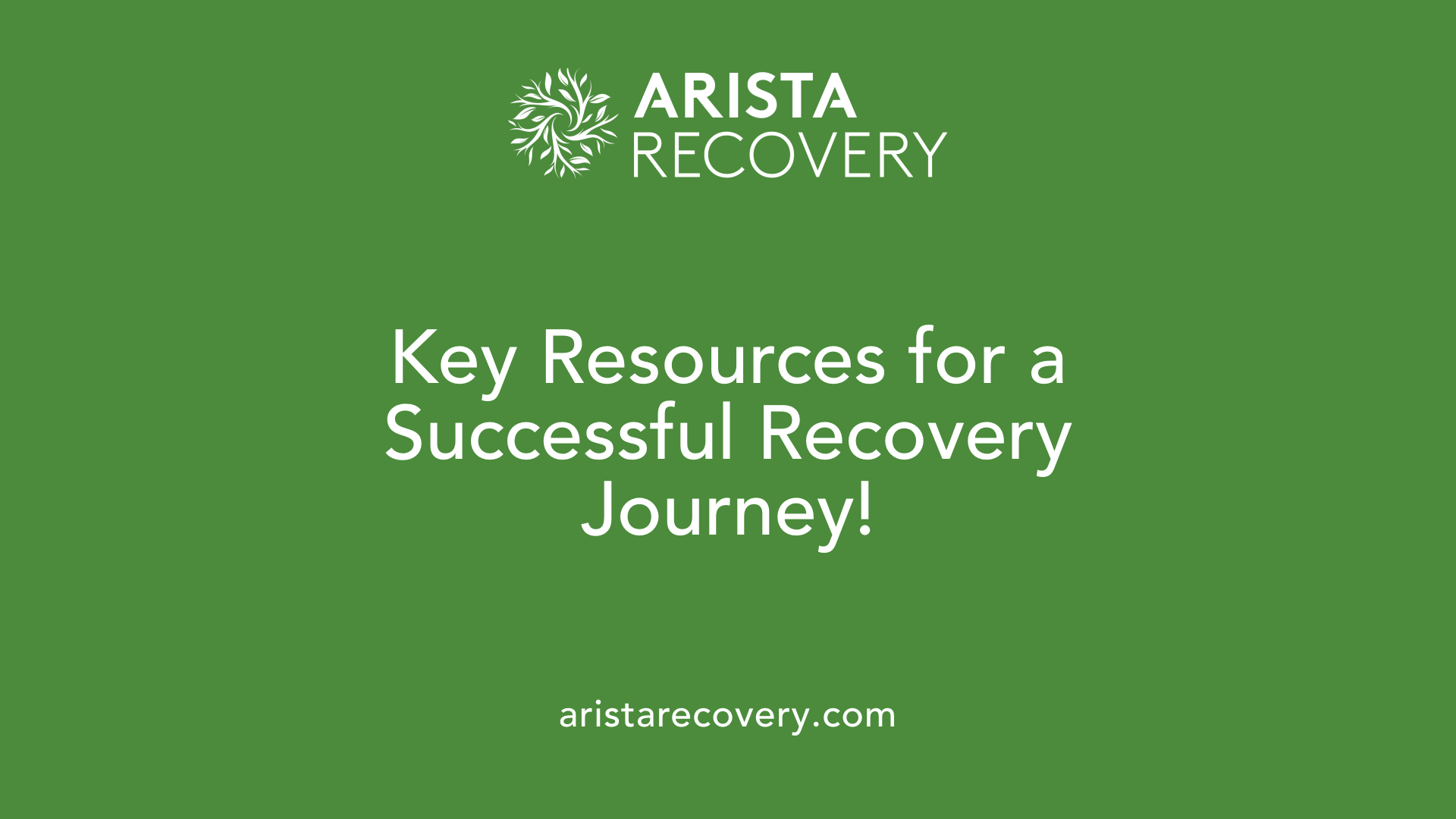
What resources and support mechanisms are available for individuals undergoing detox?
Individuals undergoing detox from heroin have various resources and support mechanisms to assist them through this challenging process. Key resources include:
- Medical Facilities: Specialized treatment centers that provide 24-hour care. Inpatient rehabilitation facilities are particularly beneficial for those with severe addiction, offering a structured environment and medical supervision to manage withdrawal symptoms effectively.
- Counseling Services: Behavioral therapies like Cognitive Behavioral Therapy (CBT) and contingency management are essential to help patients cope with cravings and underlying psychological issues related to addiction.
- Support Groups: Programs like Narcotics Anonymous (NA) provide a community support system that fosters a sense of belonging and shared experiences, which can be very motivating during recovery.
- Withdrawal Management (WM): Focuses on the medical and psychological care of patients experiencing withdrawal symptoms, emphasizing that detox is just the beginning of the treatment journey. Medications like clonidine and buprenorphine are helpful in alleviating physical withdrawal symptoms.
Importance of comprehensive care throughout the recovery journey
Comprehensive care is crucial throughout the recovery journey, facilitating a successful transition from detox to rehabilitation. This approach includes:
- Multidisciplinary Teams: Involvement of professionals such as psychiatrists, therapists, and pharmacists to deliver personalized treatment plans.
- Ongoing Support: Post-detox aftercare, including outpatient counseling and self-help groups, is vital for managing Post-Acute Withdrawal Symptoms (PAWS) and reducing the likelihood of relapse.
- Long-term Strategies: Education on harm reduction, lifestyle changes, and coping strategies is essential for building resilience against triggers and maintaining abstinence.
Together, these resources create a supportive framework designed to enhance recovery and ensure that individuals feel empowered and less isolated on their journey to sobriety.
Managing Challenges in Heroin Detox
How can challenges during heroin detox be managed and mitigated?
Challenges during heroin detox can be effectively managed through an integrated approach involving medical treatment, behavioral therapies, and emotional support.
1. Medical Treatment
Medications play a crucial role here. Options like buprenorphine and methadone not only reduce cravings but also alleviate withdrawal symptoms, making the detox process significantly more manageable. By regulating these symptoms, healthcare providers ensure a safer environment for recovery.
2. Behavioral Therapies
Therapy is essential in addressing the psychological aspects of addiction. Cognitive Behavioral Therapy (CBT) is one effective method that helps individuals develop coping mechanisms and relapse prevention strategies. This form of therapy focuses on modifying harmful behaviors and thought patterns related to substance use.
3. Emotional and Community Support
Support groups, such as Narcotics Anonymous, provide a sense of community. They help individuals feel less isolated during recovery, which is vital for mental well-being. Emotional support from family and friends can also enhance resilience and encourage accountability.
4. Nutritional and Aftercare Support
Incorporating nutritional support can further improve recovery outcomes by addressing physical health during detox. Aftercare, including individual counseling and community resources, creates a smoother transition back to daily life and helps mitigate relapse risks.
Utilizing these strategies comprehensively fosters a supportive environment essential for overcoming the myriad of challenges associated with heroin detox, ultimately paving the way for long-term recovery.
A Pathway to Recovery
Heroin detoxification is undoubtedly a challenging and complex process, but with appropriate medical and professional support, individuals can successfully navigate this crucial first step in recovery. By understanding the detox process, managing withdrawal symptoms, and participating in comprehensive treatment plans, individuals are equipped to overcome the challenging journey toward sobriety. With the help of medications, behavioral therapies, and a strong support network, long-term recovery becomes not only possible but sustainable, offering hope and healing to those afflicted by heroin addiction.
References
- What are the treatments for heroin use disorder?
- 4 Physical Detoxification Services for Withdrawal From Specific ...
- Treatment for Heroin Addiction | Main Line Health
- Heroin Withdrawal Symptoms, Timeline & Detox for Heroin
- Heroin addiction: get help - NHS
- Heroin Detox | Opioid Addiction Treatment - Royal Life Centers
- Opiate and opioid withdrawal: MedlinePlus Medical Encyclopedia
- Drug And Alcohol Detox: The First Step To Sobriety - Addiction Center
- Heroin: Signs, Withdrawal, Detox & Addiction Treatment
- Heroin Withdrawal Symptoms, Timeline, and Detox - Adcare.com
When mental health challenges and addiction intersect, it can feel isolating. At Arista, we offer compassionate, evidence-based, and trauma-informed care to help you heal, grow, and move forward.
You’re not alone in this.
When mental health challenges and addiction intersect, it can feel isolating. At Arista, we offer compassionate, evidence-based, and trauma-informed care to help you heal, grow, and move forward.
Support that moves with you.
You’ve taken a brave first step. At Arista Recovery, we’re here to help you continue with best-in-class care designed for long-term healing and support.
.webp)






